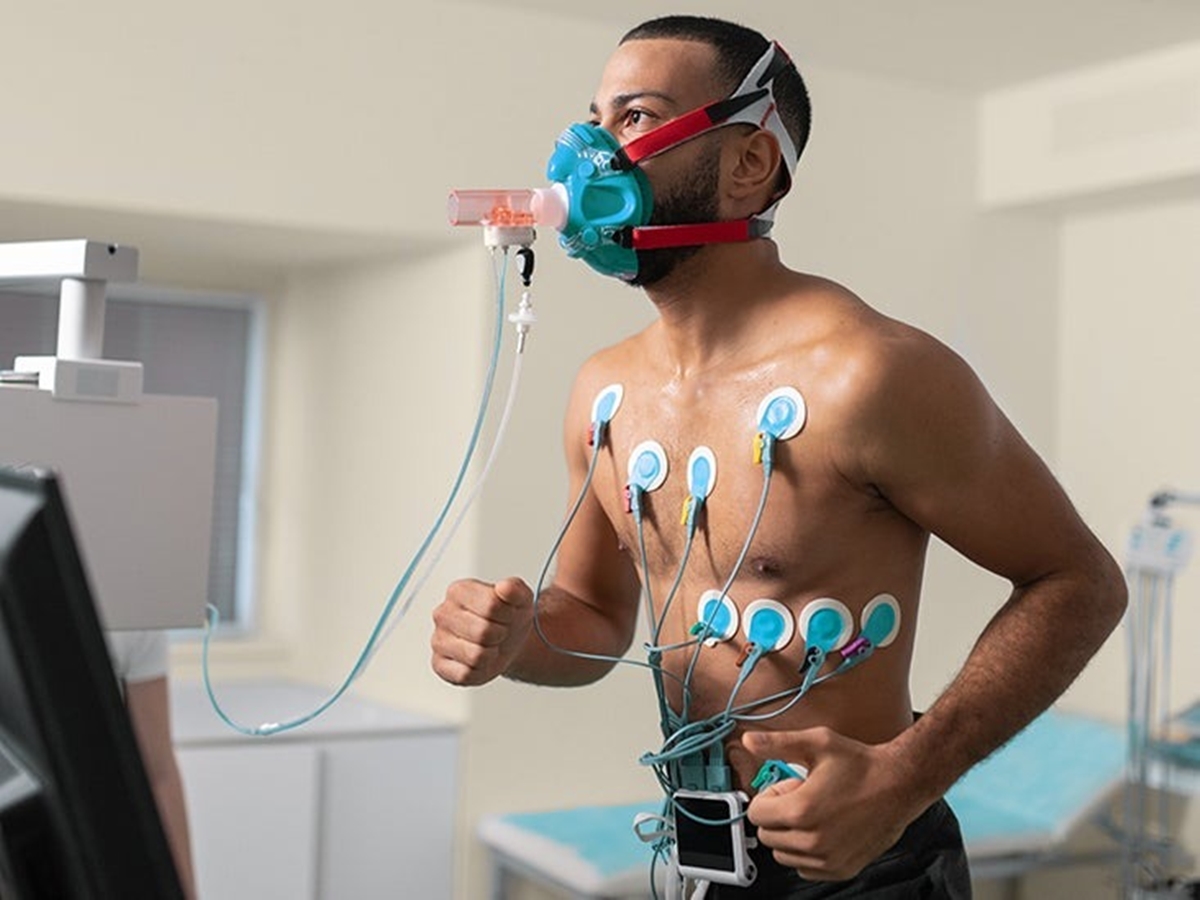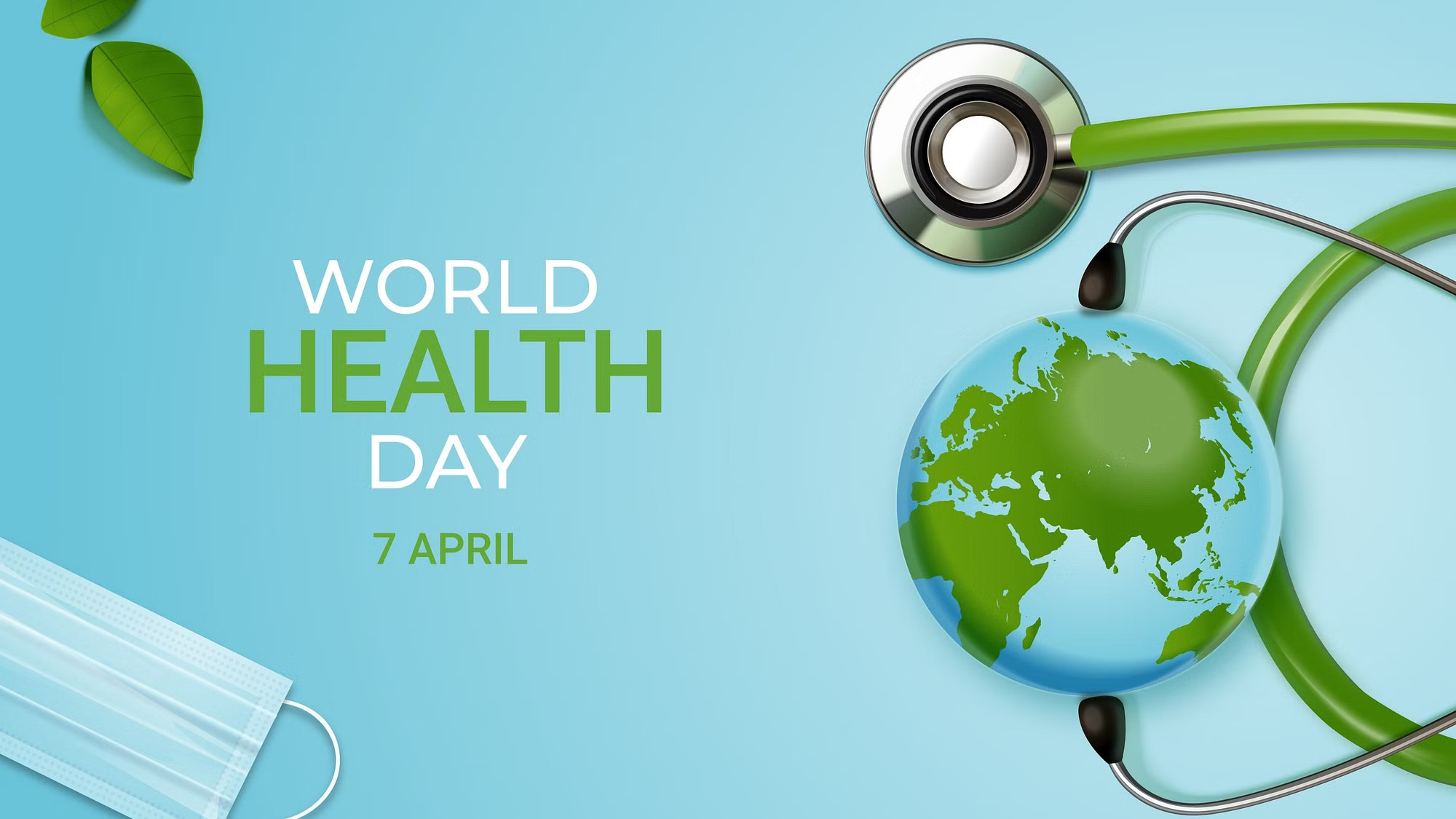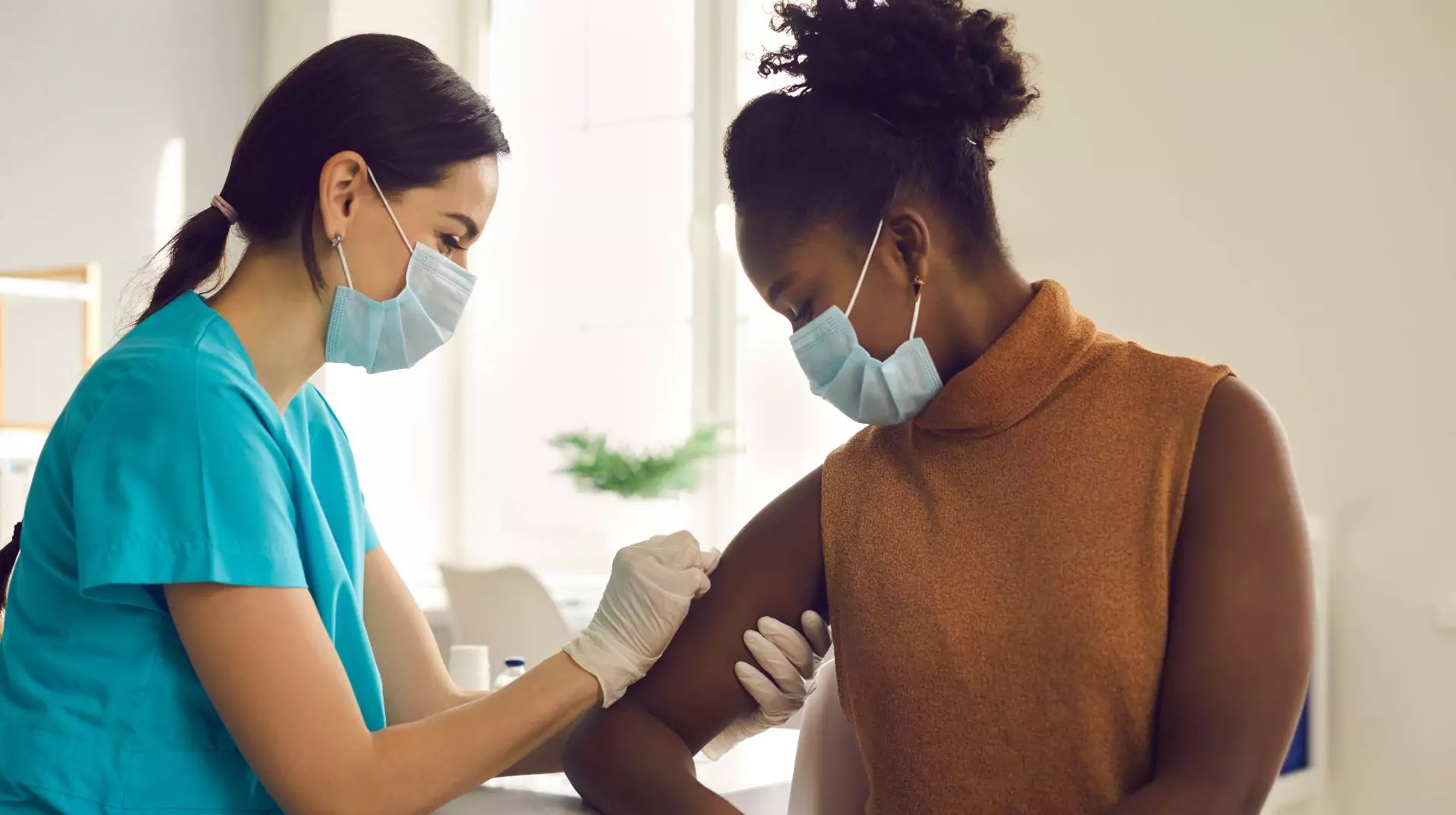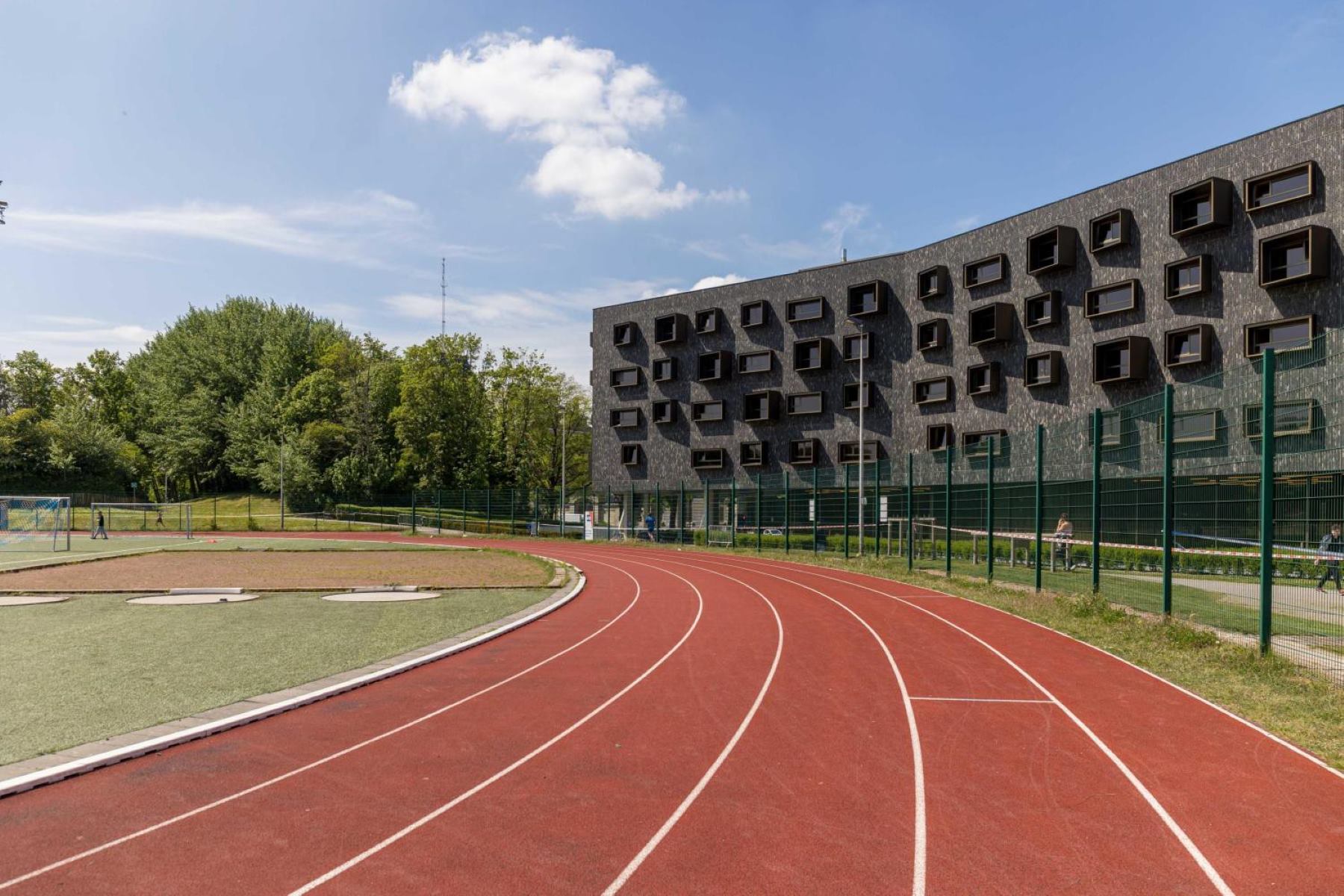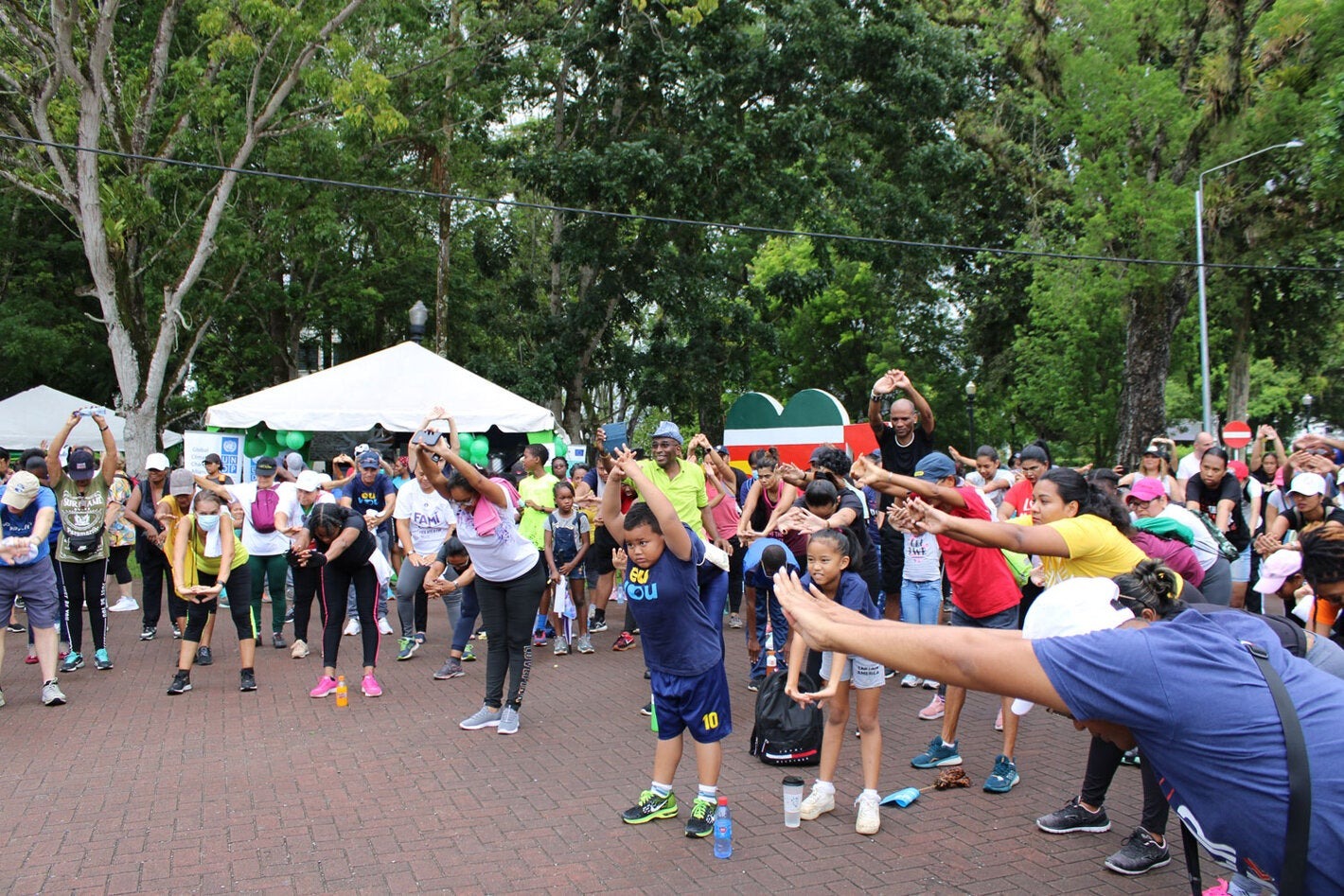

Featured
What Is A Health Fair
Modified: January 22, 2024
Learn about health fairs and how they can benefit you. Discover the latest trends and get access to featured events and resources for a healthier lifestyle.
Introduction
Welcome to the world of health fairs! Whether you are a health-conscious individual looking for ways to improve your well-being or a professional in the healthcare industry, attending a health fair can be an enlightening and enriching experience. These events offer a unique opportunity to explore various health-related resources, gather invaluable information, and engage with experts in the field.
Health fairs, also known as wellness fairs or health expos, are organized gatherings that bring together healthcare providers, professionals, educators, and the community at large. These events serve as a platform for promoting awareness, offering preventive screenings, and providing access to a wide range of health services.
With a focus on holistic well-being, health fairs cover a multitude of topics, including physical health, mental wellness, nutrition, fitness, disease prevention, stress management, and more. They aim to educate and empower individuals to take charge of their health, make informed decisions, and adopt healthier lifestyles.
The purpose of this article is to explore the various aspects of health fairs – from their definition and benefits to the types of events and common features. We will also provide insights into how attendees can prepare for these fairs and what they can expect once they arrive. Finally, we will discuss the significance of health fairs in promoting community health and well-being.
So, if you are curious to learn more about health fairs and how they can positively impact your life, continue reading to embark on a journey of health and wellness.
Definition of a Health Fair
A health fair can be defined as a community-oriented event that brings together healthcare providers, organizations, and individuals to promote health and well-being. It serves as a platform for disseminating valuable health information, conducting screenings, hosting workshops, and offering various resources to the participants.
Health fairs are typically organized by healthcare institutions, local community groups, non-profit organizations, or government bodies with the aim of reaching a wide audience. These events are usually free or have minimal registration fees to ensure accessibility for all individuals.
The scope of a health fair is diverse, covering numerous health-related topics and services. Participating organizations set up booths or stations where attendees can interact with healthcare professionals, receive health assessments, discuss concerns, and obtain educational materials. These fairs often feature a variety of activities, such as presentations, demonstrations, interactive sessions, and hands-on workshops.
One of the key features of a health fair is the availability of screenings and tests that help identify potential health risks or issues. These screenings may include blood pressure checks, cholesterol checks, body mass index (BMI) measurements, glucose tests, vision and hearing tests, and even screenings for specific diseases or conditions. Furthermore, participants may also have the opportunity to consult with healthcare providers on a one-on-one basis to seek personalized advice and guidance.
The ultimate goal of a health fair is to empower individuals to make informed decisions about their health and well-being. By providing access to valuable information, resources, and services, these fairs encourage participants to take charge of their health and adopt healthier lifestyles. They aim to raise awareness about the importance of preventive care, early detection of diseases, and the overall promotion of well-being.
Overall, a health fair is a community-driven initiative that promotes health education, preventive care, and access to healthcare services. It serves as a bridge between healthcare providers and the community, fostering a supportive environment for individuals to learn, seek guidance, and take the necessary steps towards a healthier and happier life.
Purpose of a Health Fair
The purpose of a health fair can be multi-faceted, with the primary goal of promoting health and well-being within the community. These events serve as a vital platform to educate, engage, and empower individuals to take control of their health and make informed decisions. Let’s explore some of the key purposes of a health fair:
- Health Education: One of the primary purposes of a health fair is to provide access to valuable health information. Through presentations, workshops, and educational materials, attendees can learn about various health topics, from preventive care and nutrition to mental wellness and stress management. Health fairs aim to educate the community, debunk myths, and enhance health literacy.
- Disease Prevention and Early Detection: Health fairs often include screenings and tests that help identify potential health risks or early signs of diseases. By offering services such as blood pressure checks, cholesterol screenings, and glucose tests, these events encourage preventive care and early detection. Early intervention can help individuals take prompt action to mitigate risks and prevent the progression of diseases.
- Access to Healthcare Services: Health fairs provide a unique opportunity for individuals to access healthcare services in a convenient and comfortable setting. Participants can receive free or low-cost consultations, get advice from healthcare professionals, and learn about local resources and services available to them. These events help bridge the gap between healthcare providers and the community, ensuring that individuals have the necessary tools and support to maintain their health.
- Networking and Collaboration: Health fairs foster collaboration among healthcare providers, community organizations, and individuals. They create networking opportunities for professionals to share knowledge, resources, and best practices, leading to improved healthcare delivery and community support. These events also encourage public-private partnerships, promoting a collective effort towards enhancing community health.
- Building Awareness: Health fairs raise awareness about various health issues, including diseases, conditions, and lifestyle factors. By shedding light on these topics, participants gain a better understanding of the risks and consequences associated with certain behaviors and habits. Health fairs also provide a platform to address misconceptions, stigmas, and societal challenges, fostering a culture of openness and acceptance.
Together, these purposes contribute to the overall goal of health fairs – improving the health and well-being of individuals and communities. By focusing on education, prevention, access to healthcare services, collaboration, and awareness-building, health fairs lay the foundation for healthier lifestyles and empower individuals to make positive changes in their lives.
Benefits of Attending a Health Fair
Attending a health fair offers numerous benefits for individuals of all ages and backgrounds. These events serve as an invaluable resource for improving overall health and well-being. Let’s explore some of the key benefits of attending a health fair:
- Access to Healthcare Services: Health fairs provide a convenient and cost-effective way to access healthcare services. Participants can receive screenings, consultations, and information from a variety of healthcare professionals, often free of charge or at a reduced cost. This accessibility ensures that individuals can take proactive steps in managing their health.
- Health Education and Awareness: Health fairs offer a wealth of educational resources and opportunities to learn about various health topics. Attendees can attend presentations, workshops, and interactive sessions to enhance their knowledge and gain valuable insights into preventive care, nutrition, stress management, and more. Increased health awareness empowers individuals to make informed decisions about their well-being.
- Preventive Care and Early Detection: Through screenings and tests conducted at health fairs, individuals can identify potential health risks or detect diseases in their early stages. This early detection allows for timely intervention and appropriate treatment, potentially saving lives and improving health outcomes.
- Networking and Support: Health fairs provide opportunities to connect with healthcare professionals, community organizations, and fellow attendees. These connections can lead to ongoing support, access to resources, and the establishment of a strong network dedicated to health and wellness.
- Motivation and Inspiration: Attending a health fair can be a motivating experience, inspiring individuals to adopt healthier lifestyles and make positive changes in their daily routines. Hearing success stories, learning from experts, and witnessing the enthusiasm of like-minded individuals can ignite a sense of motivation and empower individuals to take control of their health.
- Cultivating a Healthier Community: Health fairs play a vital role in fostering a healthier community by promoting preventive care, raising awareness about health issues, and encouraging collective action. By attending these events, individuals contribute to the larger goal of building a community that prioritizes health and wellness.
Whether you are looking for specific health services, seeking knowledge and information, or simply hoping to be inspired, attending a health fair can provide a multitude of benefits. These events offer a unique platform for engagement, learning, and support, allowing individuals to embark on a journey towards improved health and well-being.
Types of Health Fairs
Health fairs come in various forms and cater to different aspects of health and well-being. The type of health fair may vary depending on the target audience, the specific health topics covered, and the goals of the event. Here are some common types of health fairs:
- Community Health Fairs: These health fairs are typically open to the general public and aim to address a wide range of health concerns. They may cover topics such as preventive care, nutrition, fitness, mental health, and disease awareness. Community health fairs often feature screenings, demonstrations, and educational workshops to engage attendees.
- Workplace Wellness Fairs: These health fairs are organized within workplace settings to promote employee health and wellness. They may focus on topics such as stress management, ergonomics, healthy eating, fitness, and workplace safety. Workplace wellness fairs often include health assessments, health screenings, and interactive activities to encourage employee participation.
- Senior Health Fairs: These health fairs cater specifically to the needs and concerns of older individuals. They may provide information on age-related health issues, eldercare services, resources for maintaining independence, and preventive screenings for conditions such as diabetes, osteoporosis, and cardiovascular health.
- Children’s Health Fairs: Children’s health fairs focus on promoting the well-being and development of young individuals. They may provide information on pediatric health, immunizations, nutrition, child safety, and mental wellness. These events often include activities such as fun exercise sessions, interactive games, and educational workshops tailored to children and their parents.
- Mental Health Fairs: These health fairs emphasize mental wellness and aim to reduce the stigma surrounding mental health issues. They may provide resources on stress management, anxiety and depression awareness, mindfulness techniques, and access to mental health support services. Mental health fairs often include workshops, presentations, and panel discussions led by mental health professionals.
- Specialized Health Fairs: Some health fairs focus on specific health conditions or special populations. Examples include cancer awareness fairs, diabetes health fairs, women’s health fairs, and LGBTQ+ health fairs. These specialized events provide tailored information, resources, and support to address the unique needs and concerns of the target audience.
These types of health fairs exemplify the diversity and breadth of topics covered within each event. Whether it’s a general community health fair, a workplace wellness fair, or a specialized health fair, each type serves a distinct purpose and provides targeted resources to empower individuals in their health journeys.
Common Features of Health Fairs
While health fairs can vary in their specific offerings and themes, there are several common features that can be found across many of these events. These features contribute to creating a comprehensive and engaging experience for attendees. Here are some of the common features of health fairs:
- Health Screenings: Health fairs often offer a variety of screenings and tests to assess an individual’s health status. These screenings may include blood pressure checks, cholesterol tests, body mass index (BMI) measurements, eye and hearing exams, and blood glucose testing. Screenings allow attendees to identify potential health risks and take appropriate action.
- Educational Presentations and Workshops: Health fairs typically include educational presentations and workshops on a variety of health topics. Experts and professionals in the field provide insightful and informative sessions, covering subjects such as nutrition, exercise, disease prevention, mental health, and stress management. These sessions aim to educate and empower attendees in making healthier lifestyle choices.
- Exhibitor Booths: Health fairs often feature exhibitor booths where various organizations, healthcare providers, and community groups set up displays and interact with attendees. These booths provide resources, informational brochures, and opportunities for attendees to ask questions and seek guidance. Exhibitor booths offer a valuable platform for attendees to connect with local healthcare providers and learn about available services in their community.
- Demonstrations and Interactive Activities: To engage attendees and make the learning experience more enjoyable, health fairs incorporate demonstrations and interactive activities. These may include fitness demonstrations, healthy cooking classes, stress reduction techniques, CPR demonstrations, and hands-on activities for children. These interactive elements promote active participation and enhance the overall experience.
- Community Resources: Health fairs serve as a hub for accessing community resources related to health and well-being. Attendees can learn about local support groups, counseling services, non-profit organizations, and government initiatives that are available to them. Information on community resources empowers individuals to seek ongoing support and take advantage of available services for their health needs.
- Networking Opportunities: Health fairs provide a valuable chance for attendees to network with healthcare professionals, experts, and like-minded individuals. These networking opportunities can lead to further educational opportunities, collaborations, and ongoing support. Networking enables individuals to expand their knowledge, share experiences, and build connections within the health community.
These common features contribute to creating a dynamic and engaging atmosphere at health fairs. By combining screenings, educational sessions, exhibitor booths, interactive activities, community resources, and networking opportunities, health fairs offer a holistic and informative experience that encourages individuals to take proactive steps towards improving their health and well-being.
How to Prepare for a Health Fair
Attending a health fair can be a rewarding experience, providing you with valuable health information, screenings, and resources. To make the most out of your visit, it’s important to come prepared. Follow these tips to ensure you are ready for the health fair:
- Research the Event: Before attending the health fair, gather information about the event. Check the schedule, list of exhibitors, and presentations to plan your visit and prioritize the sessions or booths that interest you the most. Understanding the layout of the fair and what it offers will help you make the most efficient use of your time.
- Make a List of Questions: Consider the health topics that are important to you and make a list of questions you would like to ask healthcare professionals or exhibitors. This will ensure that you gather all the necessary information you need during your visit.
- Wear Comfortable Clothing: Health fairs often involve walking and standing for extended periods, so it’s essential to wear comfortable clothing and shoes. Dress in layers, as the temperature inside the venue can vary.
- Bring Necessary Personal Information: Carry any personal medical information that may be relevant for screenings or consultations. This may include your health insurance information, current medications, and any medical history that may be important for healthcare professionals to know.
- Bring a Water Bottle and Snacks: Staying hydrated and fueled throughout the day is important. Bring a refillable water bottle to keep yourself hydrated and pack some healthy snacks to keep your energy levels up.
- Bring a Small Bag or Tote: Having a small bag or tote can be useful for carrying informational brochures, giveaways, and any items you may receive from exhibitor booths. It will keep your hands free while you explore the health fair.
- Arrive Early: To make the most of your visit, arrive early at the health fair. It allows you to avoid crowds and gives you ample time to visit the booths, attend presentations, and engage with healthcare professionals.
- Engage and Ask Questions: Don’t be afraid to engage with the exhibitors, ask questions, and participate in activities or demonstrations. The health fair is an interactive environment aimed at providing you with information and support, so take advantage of the opportunities available.
- Take Notes and Collect Resources: Bring a notebook or use a note-taking app on your smartphone to jot down important information and insights you gather during the health fair. Collect any brochures, pamphlets, or contact information that may be useful for future reference.
- Follow Up: After the health fair, take the time to review your notes and the resources you gathered. Follow up on any recommendations or referrals you may have received. This will help you continue your journey towards improved health and well-being.
By preparing in advance and following these tips, you can ensure a productive and enjoyable experience at the health fair. Remember to take advantage of the resources available, engage with healthcare professionals, and make the most of the valuable information offered to you.
What to Expect at a Health Fair
Attending a health fair can be an exciting and informative experience, offering a wide range of resources, screenings, and educational opportunities. Here is what you can expect when you attend a health fair:
- Screenings and Assessments: Health fairs often offer a variety of screenings and assessments to help evaluate your health status. These screenings may include blood pressure checks, cholesterol tests, body mass index (BMI) measurements, vision and hearing tests, and glucose screenings. These assessments provide valuable information about your health and can help identify any potential risks or concerns.
- Interactive Exhibitor Booths: At a health fair, you can visit exhibitor booths where various healthcare organizations, professionals, and community groups are present. These booths provide an opportunity to interact with experts, ask questions, and gather information on a wide range of health topics. Exhibitors may offer brochures, pamphlets, and other educational materials that you can take home for further reference.
- Educational Workshops and Presentations: Health fairs often feature educational workshops and presentations by healthcare professionals and experts. These sessions cover various health topics such as nutrition, fitness, stress management, disease prevention, and mental well-being. You can expect to learn valuable insights, tips, and strategies to improve your health and well-being.
- Hands-on Demonstrations: Health fairs may include hands-on demonstrations to educate and engage attendees. These demonstrations could involve fitness exercises, healthy cooking demonstrations, stress reduction techniques, CPR training, or other interactive activities related to health and wellness. Participating in these demonstrations allows you to learn practical skills and gain firsthand experience.
- Access to Resources: Health fairs serve as a hub for accessing resources and information related to health and well-being. You can expect to find brochures, fact sheets, and informational materials on a variety of topics, including specific diseases, local healthcare facilities, support groups, and community services. Take advantage of these resources to expand your knowledge and discover valuable support networks.
- Opportunity to Consult with Healthcare Professionals: Health fairs may offer the chance to have one-on-one consultations with healthcare professionals. These discussions can help you address specific health concerns, seek personalized advice, and receive recommendations for further medical evaluations or treatments.
- Networking and Community Engagement: Attending a health fair allows you to connect with like-minded individuals, healthcare providers, and community organizations. Networking opportunities enable you to share experiences, seek support, and build relationships with individuals who share similar health goals. Engaging with the community fosters a sense of belonging and motivation to continue prioritizing your health.
By attending a health fair, you can expect an immersive experience that combines education, screenings, interactive activities, and access to resources. The fair provides a supportive environment where you can gather information, ask questions, and gain a deeper understanding of various aspects of your health and well-being.
Importance of Health Fairs in the Community
Health fairs play a crucial role in promoting health and well-being within communities. They serve as a valuable resource, offering access to health education, screenings, and support for individuals of all ages and backgrounds. Let’s explore the importance of health fairs in the community:
- Health Promotion and Education: Health fairs serve as a platform for health promotion and education. They provide communities with an opportunity to learn about various health topics, including preventive care, healthy lifestyle choices, disease management, and mental well-being. By increasing health literacy, health fairs empower individuals to make informed decisions and take responsibility for their own health.
- Early Detection and Prevention: Health fairs offer screenings and assessments that can help detect potential health issues at an early stage. Through these proactive measures, individuals can identify and address health risks before they develop into more serious conditions. Early detection and prevention are key in reducing the burden of illness and improving health outcomes within the community.
- Access to Healthcare Services: Health fairs provide a unique opportunity for individuals to access healthcare services in a convenient and supportive environment. They bridge the gap between healthcare providers and the community, ensuring that individuals have access to vital resources, information, and support. Health fairs aim to remove barriers to healthcare and promote equitable access to services for all community members.
- Community Engagement and Support: Health fairs foster community engagement and support by bringing together individuals, healthcare professionals, and community organizations. They provide a space for networking, sharing experiences, and building relationships among people with similar health goals and concerns. This sense of community support can be a powerful motivator in promoting long-term behavior change and well-being.
- Empowerment and Advocacy: Health fairs empower individuals to take control of their health by providing them with the necessary knowledge, resources, and support. Through educational sessions, workshops, and consultations, attendees can gain insights into their health, understand their rights as patients, and become effective advocates for their own well-being. This empowerment strengthens the community as a whole and encourages individuals to make positive health choices.
- Collaboration and Partnership: Health fairs facilitate collaboration and partnership between healthcare providers, community organizations, and local businesses. By working together, these stakeholders can pool resources, share expertise, and create a comprehensive approach to addressing community health needs. Collaboration leads to innovative strategies, increased access to services, and improved coordination of care for individuals in the community.
- Overall Community Health Improvement: By promoting health education, prevention, access to healthcare services, community engagement, empowerment, and collaboration, health fairs contribute to the overall improvement of community health. Healthier individuals lead to healthier families, neighborhoods, and societies as a whole. The impact of health fairs extends beyond the event itself, leaving a lasting positive influence on the community’s health and well-being.
Health fairs are an essential component of community health promotion and play a vital role in creating healthier, thriving communities. By addressing health needs, promoting engagement, and fostering collaboration, health fairs create a ripple effect of positive health outcomes for individuals and communities.
Conclusion
Health fairs bring together the community, healthcare providers, organizations, and individuals to promote health education, preventive care, and access to healthcare services. These events play a vital role in empowering individuals to take charge of their health, making informed decisions, and adopting healthier lifestyles.
Throughout this article, we have explored the various aspects of health fairs, including their definition, purpose, benefits, types, common features, and the preparation needed to attend them. By attending a health fair, individuals can access valuable resources, receive screenings and assessments, learn from educational presentations, engage with healthcare professionals, and connect with fellow community members.
Health fairs not only promote personal health and well-being but also contribute to the overall improvement of community health. They foster collaboration, advocacy, and community engagement, helping to create a culture of health and wellness within a community.
Whether it’s a community health fair, workplace wellness fair, or specialized health fair, each event offers unique opportunities for attendees to gain knowledge, make connections, and take proactive steps towards a healthier lifestyle. By participating in a health fair, individuals increase their health literacy, promote preventive care, and support the betterment of their community.
So, if you have the chance to attend a health fair in your community, seize the opportunity to engage, learn, and take control of your health. Together, let us empower ourselves and those around us to lead healthier and happier lives.

